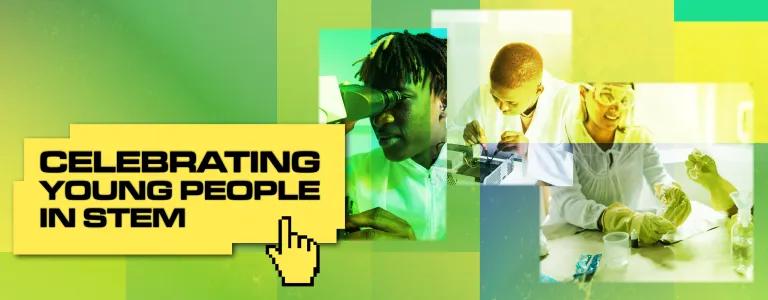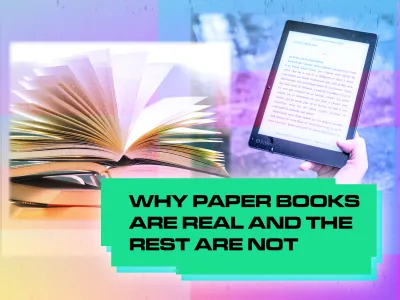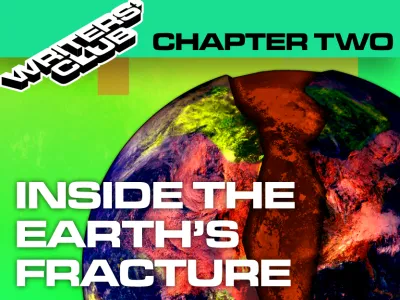
Celebrating Young People In STEM
The Big Bang aims to redefine what’s possible when it comes to STEM (Science, Technology, Engineering and Mathematics) and young people. They hold a fair every year where you can learn all about different projects currently happening in STEM, take part in interactive activities, get some career inspo and advice, and meet with real scientists and engineers!
Alongside the fair, they also hold a competition every year where young inventors and experimenters are encouraged to shine bright, think big, challenge facts, and invent solutions for any problems that might be happening in the world - from health to the environment to computing to design and technology!
The 2022 competition is still open (!!) but let’s take a look at, and celebrate, last year's winners - and perhaps give you some inspiration if you’re thinking of entering…
ENGINEERING CATEGORY
KAEDE SUGANO, YEAR 12, RUGBY SCHOOL
GSK UK YOUNG ENGINEER OF THE YEAR 2021
When Kaede’s grandparents wanted to go on holiday, they started to get confused by all the different travel websites around, and couldn’t find a good package deal. They asked Kaede to help them make sense of it all, and, well, she did one better! Since the age of ten, Kaede had always liked the idea of being able to talk to computers. Now, in Year 12, Kaede compares it “to the idea of learning to play the piano. When you start off, these random shapes don’t seem to make any sense, but once you start learning the language, it’s like a magic that helps you make sense of everything and play beautiful music”. And it was language that she used to create her project. Kaede built her own algorithm to help people find a holiday deal that completely suits them, without having to trawl through hundreds of confusing websites. They rate tourist spots using three different criteria – sentiment, novelty and physical ability - and the app takes the traveller’s preference and package holiday profile using the algorithm to measure the similarity between them. Amazing!
BHUVAN BELUR, YEAR 13, WESTMINSTER SCHOOL
SENIOR ENGINEERING WINNER
When Bhuvan watched a TED Talk about an invention to help deaf people receive vibrations around their body by wearing a special vest and therefore help them hear people talking, he got inspired. His invention, the Senseborg Belt, helps people with balance issues - like vertigo and Parkinson’s - and helps prevent them from falling. Find out more by watching his video:
LUDOVICA KNIGHT, YEAR 10, ST CATHERINE’S COLLEGE
INTERMEDIATE ENGINEERING WINNER
Since she was young, Ludovica always liked taking things apart and putting them back together again, creating sculptures and artwork with her dad in their garage! For her winning project, she made a model demonstration of a mechanical energy storage system using (among other things!) an old clock and a gearbox to show that wind energy can be collected and stored for later use. Find out more by watching her video:
SERENA JACOB, YEAR 9, BEDFORD GIRLS SCHOOL
JUNIOR ENGINEERING AWARD
Serena has always enjoyed learning about the human body, especially about diseases that affect us all. When we heard that Type 2 Diabetes could actually be prevented she was inspired. And so she created an app to prevent or potentially even treat it. The app targets reversible risk factors for the disease and provides ways to reduce those risks by calculating personalised risk scores and generating a user-specific plan to reduce them. Incredible! Find out more by watching her video:
SCIENCE CATEGORY
KELL JOHNSTON, YEAR 12, QUEEN ELIZABETH HIGH SCHOOL
GSK UK YOUNG SCIENTIST OF THE YEAR
Kell has always been scientifically curious. And when lockdown happened, it didn’t stop him with his experiments. His winning project, ‘Does willow extract have beneficial impacts when rooting cuttings?’ may not have turned out exactly as he thought it would, but it won him Scientist of The Year for his determination and furious nature. Kell wanted to find out whether willow water extract (made by submerging willow leaves in water for a certain amount of time and then straining it) could be used to promote root growth for different plants. “I had a eureka moment that I could extract salicin - which I knew was in willow and turn it into aspirin. But then lockdown happened and I didn’t have a lab! And then I had this brainwave that the same salicin could be used to help plants grow. This would be an environmentally friendly alternative to using synthetic products” he said. So, Kell set about testing his theory on a number of different cuttings. And the findings? Well, it turns out that nothing remarkable actually happened and the results were inconclusive. But, this didn’t deter him! “I think this is a very good example of how science is, in fact, in the real world and is not perfect. Getting bad results happens and it’s actually much more interesting than getting a perfect match to your predictions!” Some hopeful words for everyone there!
CLARA NORENBERG, YEAR 13, OXFORD HIGH SCHOOL GDST
SENIOR SCIENCE WINNER
Clara won the Science award for her project that helps the environment. Her project, titled, ‘Producing a super-absorbent polymer based on chitosan’ looks at the conditions in which plants live. Clara then developed an affordable hydrogel which can be added to soil to help plants - especially those that grow in dry conditions - to retain as much water as possible and thrive! Time to get potting then!
ALEX LOCKYER, YEAR 10, BRENTWOOD SCHOOL
INTERMEDIATE SCIENCE WINNER
The inspiration for Alex’s project came when he watched a documentary about obesity and saw participants in a study having to touch a screen when a healthy food was shown, and remain still when unhealthy food was shown. This is called exposure response therapy, and inspired Alex to create a software program to see whether the method could be used to help treat people with OCD symptoms. Find out more by watching his video:
JAMES BARBER, YEAR 8, ST. FAITH’S SCHOOL
JUNIOR SCIENCE AWARD
When James was six years old, his dad was doing an experiment with hydrogen in the garden and it inspired a now lifelong love of science and experimenting - particularly in comparing household items like laundry detergent. His winning project, looked at the different mouthwashes his family used (“because for some reason we all use different ones!”) and compared which was actually best at killing microbes. Find out more by watching his video:
So, are you inspired? If so, why not enter the Big Bang 2022 Competition! Entries close on 20 March 2022, so get your entries in quick! Find out more about how to enter and what you need to do by heading to the Big Bang website. And good luck!




